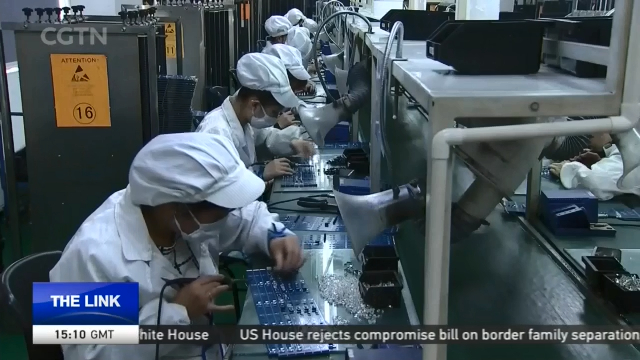
08:37, 29-Jun-2018
African Economies: U.S. trade spat with other nations threatens the continent
Updated
08:07, 02-Jul-2018
02:13

But that's where the similarities end. The Continental Free Trade Agreement is still a new deal, while the World Trade Organization is a fully established body based on the multilateral trading system. Although it hasn't benefited Africa as much as it is hoped, the trade spat between the United States and other nations threatens the African continent. CGTN's Chao Mghono explains why.
Global trade growth in 2017 was at its strongest since 2011. That's according to the World Trade Organization's annual report. But the WTO is warning that strong performance may be compromised by the escalation of global trade tensions. The WTO says the multilateral trading system can be a force for good globally - promoting stability, creating opportunities, and boosting growth and development. And that's crucial for the developing world.
According to experts, emerging markets are struggling to maintain their economic gains. Countries like South Africa are directly affected by U.S. tariffs. It exports around 330-thousand tonnes of steel to the U.S. Economists in South Africa warn that an escalation in the trade spat will lead to further retaliation. That in turn will lead to a global slowdown in trade. Stronger global trade means higher commodity prices. That boosts the economies of commodity-producing nations like South Africa.
Analysts say Donald Trump's tit-for-tat protectionism could leave emerging markets under a great deal of pressure. Many African countries have small, open economies with limited domestic markets that need to expand trade. These markets are influenced by growth in their destination trade markets like China, the U.S., and the EU. If those markets take a hit, so do African economies. Experts in Africa say Donald Trump's escalating rhetoric will lead to more volatility, more vulnerability, and more risk for emerging markets. Chao Mghono, CGTN.

SITEMAP
Copyright © 2018 CGTN. Beijing ICP prepared NO.16065310-3
Copyright © 2018 CGTN. Beijing ICP prepared NO.16065310-3